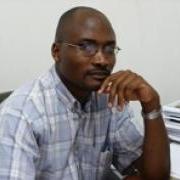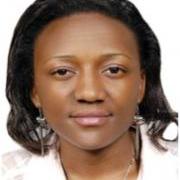Project Year
2011
Region(s)
East Africa
Country(ies)
Uganda
Project Description
There are five mobile telephone providers (MTN-Uganda, Orange, Zain-Uganda, Warid and Uganda Telecom) out of which MTN-Uganda; Zain (Uganda) and Uganda Telecom, provide mobile money services. Nevertheless, there is a lack of knowledge with regard to the influence of fee structures on service uptake. The social psychological determinants of mobile money technology use and adoption remain not well understood. It is not adequately known how the fees compare with existing costs of value storage and transfer using traditional banking systems.
This study seeks the following goals: (a) examine fee structures of the various mobile money providers in Uganda; (b) relate the fee structure of the various money providers to uptake; (c) examine the social psychological determinants of mobile money technology use and adoption in Uganda; and (d) compare the fees with existing costs of value storage and transfer using traditional banking systems.
Researcher(s)
Bruno L. Yawe, Tinah Nassali
About the Researcher(s)
 Bruno Lule Yawe has taught at the Faculty of Economics and Management, Makerere University since
1999. He holds a Bachelor of Science (Economics) Degree of Makerere University, Master
of Arts (Economics) and Doctor of Philosophy (Economics) Degrees of the University
of Dar es Salaam. He currently teaches Managerial Economics, Research Methodology
and Mathematical Economics to undergraduates. At the graduate level, he teaches Health
Economics, Macroeconomics for Policy Analysis, Microeconomics, Alternative Health
Systems, International Health Care Systems and Managing Health Services. His PhD thesis
is titled: “Technical Efficiency and Total Factor Productivity Growth in Uganda’s
District Referral Hospitals”. He has attended several short courses in Econometric
and Research methods, Computing Skills and the Measurement of Efficiency in Public
Sector Organisations. He has consulted for local and international organisations in
various areas. He received advanced training in Quantitative Methods, Economic Theory
and elective courses in the fields of Health Economics and Financial Economics. His
current research interests include but are not limited to: ICT and financial services;
performance measurement (efficiency, equity, quality, effectiveness) in health care
and education.
Bruno Lule Yawe has taught at the Faculty of Economics and Management, Makerere University since
1999. He holds a Bachelor of Science (Economics) Degree of Makerere University, Master
of Arts (Economics) and Doctor of Philosophy (Economics) Degrees of the University
of Dar es Salaam. He currently teaches Managerial Economics, Research Methodology
and Mathematical Economics to undergraduates. At the graduate level, he teaches Health
Economics, Macroeconomics for Policy Analysis, Microeconomics, Alternative Health
Systems, International Health Care Systems and Managing Health Services. His PhD thesis
is titled: “Technical Efficiency and Total Factor Productivity Growth in Uganda’s
District Referral Hospitals”. He has attended several short courses in Econometric
and Research methods, Computing Skills and the Measurement of Efficiency in Public
Sector Organisations. He has consulted for local and international organisations in
various areas. He received advanced training in Quantitative Methods, Economic Theory
and elective courses in the fields of Health Economics and Financial Economics. His
current research interests include but are not limited to: ICT and financial services;
performance measurement (efficiency, equity, quality, effectiveness) in health care
and education.
 Tinah Nassali is an economist based in Uganda. Currently, she is the Research Coordination Assistant
for the College of Business and Management Science, Makerere University Kampala Uganda.
She obtained her bachelor honours degree in Development Economics after obtaining
a state scholarship from the Republic of Uganda (2005-2008) and has since been engaged
in research on different projects among which; The Economic Evaluation of Neglected-
Tropical Diseases (NTD) Integrated Intervention funded by the SCI, Imperial College
London (UK) and the Vector Control Division (VCD), Ministry of Health (MoH), Uganda
(2008 – 2010) as a Research Coordinator, ‘Needs Assessment for Alternative Power Source
for Paediatric Ward at Soroti Regional Referral Hospital’ funded by Malaria Consortium,
Uganda (2009), The Export Capacity Supply Constraint project funded by the African
Economic Research Consortium (AERC) in 2009, The Role of NGOs in Poverty Reduction
of Uganda funded by the School of Economics, University of Nottingham, UK (2008 -
2009) as a Research Coordinator for the survey, Administrator for the Endline survey
for an Impact Evaluation of water services in peri-urban Kampala funded by The World
Bank and field supervision of data collection for a Poultry Value Chain Analysis focusing
on identifying opportunities for improvement of the Poultry sector in Uganda funded
by FAO (2010).
Tinah Nassali is an economist based in Uganda. Currently, she is the Research Coordination Assistant
for the College of Business and Management Science, Makerere University Kampala Uganda.
She obtained her bachelor honours degree in Development Economics after obtaining
a state scholarship from the Republic of Uganda (2005-2008) and has since been engaged
in research on different projects among which; The Economic Evaluation of Neglected-
Tropical Diseases (NTD) Integrated Intervention funded by the SCI, Imperial College
London (UK) and the Vector Control Division (VCD), Ministry of Health (MoH), Uganda
(2008 – 2010) as a Research Coordinator, ‘Needs Assessment for Alternative Power Source
for Paediatric Ward at Soroti Regional Referral Hospital’ funded by Malaria Consortium,
Uganda (2009), The Export Capacity Supply Constraint project funded by the African
Economic Research Consortium (AERC) in 2009, The Role of NGOs in Poverty Reduction
of Uganda funded by the School of Economics, University of Nottingham, UK (2008 -
2009) as a Research Coordinator for the survey, Administrator for the Endline survey
for an Impact Evaluation of water services in peri-urban Kampala funded by The World
Bank and field supervision of data collection for a Poultry Value Chain Analysis focusing
on identifying opportunities for improvement of the Poultry sector in Uganda funded
by FAO (2010).Synopsis of Research Results
Link to Bruno L. Yawe and Tinah Nassali's "Differences between Fee Structure of Mobile Money Technologies and Traditional Banking Systems, Social Psychological Determinants and Service Uptake: A Case Study of Uganda"



